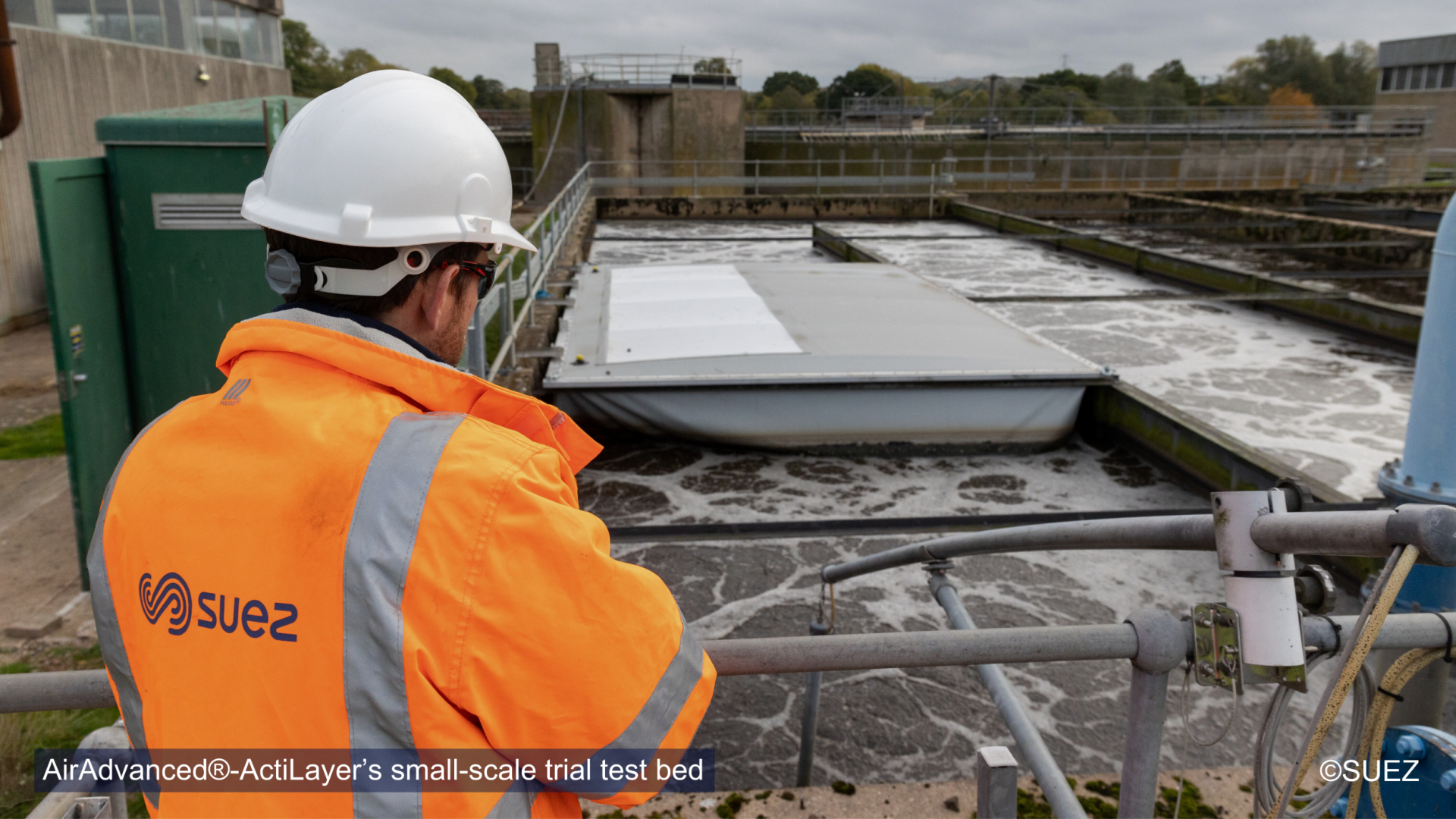Beyond the bustling facade of thriving cities lies the hidden world of wastewater treatment plants. These essential facilities, tasked with purifying our water sources, are unwitting contributors to greenhouse gas emissions (GHGs) that leave a significant carbon footprint on the environment. However, a breakthrough technology known as AirAdvanced®-ActiLayer holds the promise of transforming the industry’s environmental impact.
Developed by SUEZ, AirAdvanced®-ActiLayer is an innovative on-site solution set for a full ‘at-scale trial’ at Severn Trent Water’s Net Zero Hub at the Strongford Sewage Treatment Works in the UK. The Net Zero Hub is the world’s first carbon-neutral waste treatment facility recently awarded a £10 million Ofwat Innovation Fund grant. The Ofwat Innovation Fund provides financial support for pioneering water sector innovations geared towards sustainable management practices in the water industry.
The conventional treatment of wastewater has long been associated with substantial GHGs, with nitrous oxide (N2O) and methane (CH4) among the primary culprits. Recognising the urgency to address these emissions and speed up the journey towards net zero, AirAdvanced®-ActiLayer is designed to harness the power of light (including sunlight!) that will break down pollutants and reduce harmful GHGs.
“The importance of AirAdvanced®-ActiLayer cannot be overstated. As the water industry faces increasing pressure to reduce its carbon footprint, this innovative solution presents a way forward that not only reduces emissions but also improves overall operational efficiency,” says Craig Lewis, SUEZ UK Air & Climate Manager. “By effectively mitigating N2O emissions, which have been found to be significant at activated sludge plants in large wastewater treatment facilities, ActiLayer can play a crucial role in achieving net zero objectives.”
This advanced filter technology is centred around its special ability to use light energy to trigger a chemical reaction that breaks down captured pollutants. Originally created to eliminate nuisance odours like hydrogen sulfide (H2S) and volatile organic compounds (VOCs), the ActiLayer technology is now being tested for its potential to reduce emissions.
What makes ActiLayer unique is its seamless integration with existing infrastructure, offering a practical and cost-effective solution for wastewater treatment plants. It has a primary activated carbon layer coated with an additional metal catalyst, allowing for photocatalysis to happen right in the treatment tanks. By incorporating this technology into existing setups, operators can avoid extensive modifications and excessive costs while enabling widespread adoption.
Severn Trent, in collaboration with SUEZ, has already put this technology to the test at their Resource and Recovery Innovation Centre located at their Redditch wastewater treatment plant in the UK. The trial has provided positive insight into the performance of the AirAdvanced©-ActiLayer solution.
Rich Walwyn, Head of Asset Intelligence and Innovation at Severn Trent, said: “Our Resource and Recovery Innovation Centre is an incredible facility which allows us to bridge the gap between pilot and full-scale trials. Among the processes on site is AirAdvanced®-ActiLayer which we will now be trialling at full-scale at our new Net Zero Hub and we are immensely proud to be partnering with SUEZ on this exciting project.”
“While combating the climate emergency is a huge challenge, it is one that we are determined to meet, and collaborating with industry experts and water companies – be it here in the UK or overseas – is key to bringing about change.”
The Severn Trent trial has demonstrated the tangible benefits of AirAdvanced-ActiLayer in emissions reduction and sustainability. As SUEZ and Severn Trent continue to champion the technology, wastewater treatment plants can be transformed into ‘eco-friendly hubs’ that not only clean water but also contribute to a circular economy, a goal that SUEZ is deeply committed to.



